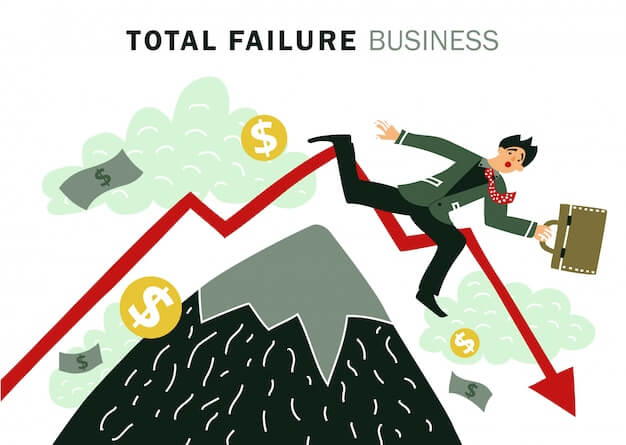Among Chinese family businesses, Sun Hung Kai Properties and Henderson Land in Hong Kong are often regarded as icons of Asia's post-World War II economic success. However, studies have shown that family businesses of Chinese background tend to have a shorter lifespan than family businesses in other parts of the world, mainly due to a distrust of outsiders, a wanderer mentality and other weaknesses of Chinese family businesses. So what can Chinese family businesses do to improve their chances of survival?

To gain a deeper understanding of this issue, I recently spoke to two experts: Roger King, founder of the Hong Kong University of Science and Technology's Chen Jiang and the Asian Centre for Family Business and Entrepreneurship Research, and Qian Peng, associate director of the Centre. Here is a summary of the conversation.
Q: How strong is the staying power of Chinese family businesses in general compared to other parts of the world?
A: There is a Chinese proverb that is often used as a kind of magic spell these days: "You can't get rich for three generations". There are similar expressions in other cultures.
Studies show that the staying power of family businesses is a global issue. However, Chinese family businesses seem to be particularly prone to early death. Statistics show that none of the world's 100 oldest family businesses are Chinese. This jaw-dropping fact is out of proportion to China's long history, rich heritage, vast geography and large population. China's neighbouring island nation, Japan, on the other hand, holds nine of the top ten oldest family businesses in the world. The world's oldest family business, Kongo Gumi, is also Japanese, having been in existence for over 1,400 years since its founding in 578 AD.

Q: What are the main factors that have shaped the way Chinese family businesses operate?
A: Hierarchical relationships, guided by Confucianism, play a crucial role in Chinese organisations and businesses. In the family, as elders are expected to show compassion and protection, while the younger generations are expected to respect and obey their elders. This hierarchical relationship forms the basis of the control and management system in Chinese family businesses. In the family, conflicts between juniors and seniors are controlled and regulated by the 'elders'. The reliance on family and family networks has led to a clear distinction between 'insiders' and 'outsiders' in the Chinese community. Most social activities are organised by trusted 'insiders'. The over-reliance on blood ties and ethnicity presents significant management challenges, as these factors may prevent the selection of competent management team members and limit the expansion of the business to other regions.
However, the larger unit of Chinese society is the family network - extending from family members to blood relatives, fellow villagers or neighbours. This environment creates a sense of collectivism. Collectivism allows clan identity to be maintained intact, while providing support for Chinese entrepreneurs in the start-up and development stages.
Another factor that has shaped Chinese family businesses is the system of joint inheritance, where family assets are divided equally among all male descendants. The system of joint inheritance emphasises joint ownership and can lead to a fragmentation of resources. For the family, the role of the family business in economic terms is merely instrumental; the most important thing is to ensure the continuation of the family genealogy and lineage.
This system differs from the system of primogeniture practised in Japan and some European countries, where it is customary for the eldest son to have exclusive rights of succession. Collectivism and family are also valued in Japanese culture, with attention focused on sustaining the family heritage and business.

Q: What factors contribute to the relative vulnerability of family businesses in China to early death?
A: Firstly, political instability in this region can lead to a wanderer mentality among local Chinese. In the past century, the socio-political environment in China has not been very stable. Many Chinese family businesses were founded by Chinese who emigrated to Hong Kong, Taiwan or other parts of Southeast Asia. The main reason that caused them to emigrate was to survive. Many of the emigrants considered their lives abroad to be temporary and never gave up their desire to return to their homeland. These expatriates are like 'always packing their bags' and sometimes see business as a temporary means of making a living.
Secondly, many Chinese family businesses lack a sustainable business model. They often adopt a "small profit" strategy. They will rely on cheap labour costs and social connections to win contracts, but this strategy is not sustainable in the long run. Many are reluctant to take a long-term view of business investment due to political instability and uncertainty about the future.
Thirdly, the heirs to Chinese family businesses are usually chosen on the basis of birth order rather than through a comprehensive assessment, which can lead to ineffective succession. Distrust of outsiders can also hinder the process of management professionalisation and limit the talent pool. The role of family ties is so strong that family members are preferred to professionals even if they are not competent to manage the business. This may result in the family business not being able to scale up or being short-lived.
Finally, the equal distribution of family wealth and joint ownership of businesses in Chinese family businesses results in wealth being diluted and wasted as the family grows larger and older. Family members who have a small shareholding are not active in handling the family business, and those passive shareholders who are not involved in the business will want out or expect a return disproportionate to the performance of the business.

Q: How can you help a business improve its chances of survival?
A: There are three success stories, namely Lee Kum Kee and Li & Fung Group in Hong Kong, and Eu Yan Sang in Singapore. The common feature of the success of these companies is the high level of innovation shown at the beginning of each successive change of old and new management of the business.
The intergenerational transmission of entrepreneurial spirit is key to building brand prestige and passing on the business and its legacy within the family. The weaknesses that exist in Chinese family businesses can be remedied by complementing the entrepreneurial spirit with each generation at the helm.
In terms of balancing Eastern and Western values, the three businesses that have achieved this reconciliation of values have three characteristics: the adoption of modern management models derived from Western culture; a united and harmonious approach to resolving conflicts and heritage preservation within the family; and study abroad from family members. For Chinese family businesses that want to achieve this balance, the positive aspects of these two values can contribute to the longevity of these businesses.
At the same time, these three businesses, along with the restructuring of management, have also undergone a restructuring of ownership. The reduction in family shareholders has been accompanied by a corresponding reduction in the number of family members involved in management. The streamlined ownership structure helps the businesses to have a clear vision and strategic framework. By eliminating business divisions that no longer generate profits, the family is able to focus on the more profitable branches of the business, while maintaining the family legacy. By reducing distractions, the business is able to focus on its lasting legacy.
Q: Families are much smaller in today's world than they used to be. This does not necessarily bode well for the talent pool of family businesses.
A: For Chinese family businesses, it is becoming increasingly difficult to select family members as heirs as opposed to outsiders. Late marriages, the low birth rate in modern society and the one-child policy in place in China mean that the choice of heirs is becoming increasingly restricted. It has become essential for the later members of the family to receive a Western education. With more and more young people studying abroad, which will accordingly give them a wider range of career options, the question of how best to train a qualified successor, while at the same time ensuring that they are willing to come back and take over the business, is one that deserves to be explored in depth. In the process of globalisation, it is also a question for family businesses in other cultures to take on board the values of other cultures and reconcile them with their original values.















